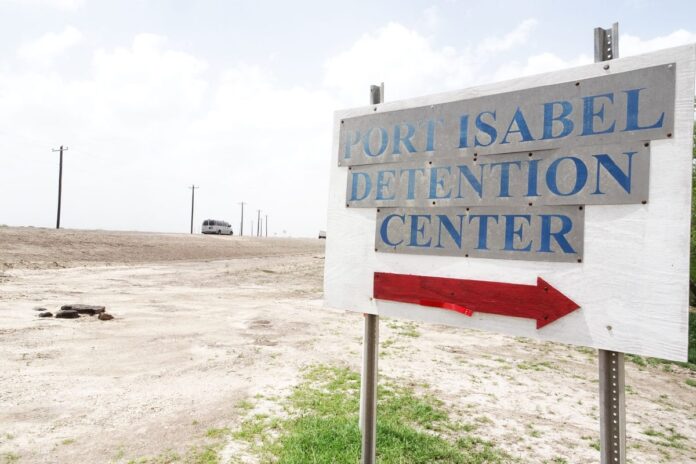An order was filed in the case of five undocumented people previously incarcerated in Port Isabel who alleged that they were packed into overcrowded cells and detained for weeks without adequate food, water, medical care, sanitation facilities, or access to legal counsel.
On Wednesday, U.S. District Judge Fernando Rodriguez ordered authorities to provide the attorneys of former detainees, most of whom have been released on bond, with no less than 14 days written notice before any deportation proceedings are initiated.
The order is a follow-up to a previous mandate issued in July 2019, which declared that the detainees could not be deported while their various petitions for habeas corpus were adjudicated.
The document filed on Wednesday notes that the removal of a petitioner from the United States could prejudice that individual’s ability to communicate with attorneys or proceed with the lawsuit, requiring the deferment of removal proceedings.
A 28-page document filed in a federal court on July 20, 2019 alleged multiple violations of the law, including that attorneys were not allowed to visit those detained at U.S. Customs and Border Protection (CBP) facilities at the Port Isabel Service Processing Center.
The policy prevented attorneys from obtaining clients’ signatures on G-28 forms, which the Department of Homeland Security (DHS) requires in order for attorneys to be legally recognized as counsel.
According to the document, several detainees alleged that they were pressured into signing documents in which they relinquished their right to seek asylum.
It also alleges incidents in which minors were pressured into signing false statements claiming they were adults, allowing them to be transferred into the custody U.S. immigration and Customs Enforcement (ICE).
Conditions in overcrowded holding cells were described in the document as “unbearable.” Detainees seeking asylum were allegedly held at CBP facilities for up to eight weeks before being transferred to ICE or deported to Mexico as a result of Migrant Protection Protocols (MPP).
Additionally, the petition also alleged that the imprisonment was unlawful given that detainees were held incommunicado, with no access to telephones.
Attorneys argued that incarceration for long periods of time without inadequate food, water, medical care, sanitation, and sleeping facilities was in violation of the law.
Petitioners alleged that drinking water smelled and was heavily chlorinated, food was inadequate, toilets were unsanitary, showering and bathing facilities were virtually non-existent, and that they had to sleep on the floor or standing up.
The petition referred to conditions at CBP facilities as “notoriously abysmal” and noted that the small rooms as in which detainees were held are often termed “hieleras” (Spanish for “freezers”). Attorneys alleged that CBP keeps them at uncomfortably low temperatures and is aware that they are “not for sleeping”.
Requests for habeas corpus were filed on the behalf of multiple residents from El Salvador and Guatemala who were detained at unknown facilities in the Rio Grande Valley Sector of the CBP and is being adjudicated as a consolidated petition.
Listed as respondents in the original petition were Kevin McAleenan (acting United States Secretary of Homeland Security, Rodolfo Karisch (Chief Patrol Agent – Rio Grande Valley Sector), and Michael Pitts (Field Office Director, ICE/ERO, Port Isabel Service Processing Center).




